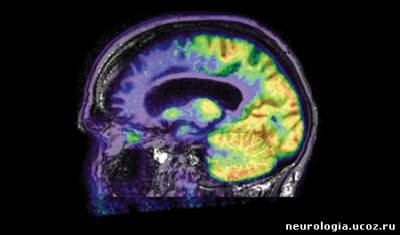Site menu
Section categories
| Noutăţi [231] |
| Atestare [5] |
| Perfecţionare [191] |
| Anunţuri [22] |
Our poll
Din ce domeniu al medicinii sunteţi ?
1. Student
2. Neurologie
3. Rezident Neurologie
4. Alt domeniu
5. Psihologie
6. Neurochirurgie
7. Rezident Neurochirurgie
[ Rezultate · Arhiva sondajelor ]
Total răspunsuri: 196
Chat Box
Search
Entries archive
- 2008 Noiembrie
- 2008 Decembrie
- 2009 Ianuarie
- 2009 Februarie
- 2009 Aprilie
- 2009 Mai
- 2009 Iunie
- 2009 Iulie
- 2009 August
- 2009 Septembrie
- 2009 Octombrie
- 2009 Noiembrie
- 2009 Decembrie
- 2010 Ianuarie
- 2010 Februarie
- 2010 Martie
- 2010 Aprilie
- 2010 Mai
- 2010 Iunie
- 2010 Iulie
- 2010 August
- 2010 Septembrie
- 2010 Octombrie
- 2010 Noiembrie
- 2010 Decembrie
- 2011 Ianuarie
- 2011 Februarie
- 2011 Martie
- 2011 Aprilie
- 2011 Mai
- 2011 Iunie
- 2011 Iulie
- 2011 August
- 2011 Septembrie
- 2011 Octombrie
- 2011 Noiembrie
- 2011 Decembrie
- 2012 Ianuarie
- 2012 Februarie
- 2012 Martie
- 2012 Aprilie
- 2012 Iunie
- 2012 Noiembrie
- 2012 Decembrie
- 2013 Ianuarie
- 2013 Februarie
- 2013 Aprilie
- 2013 Iunie
- 2013 Iulie
- 2013 Decembrie
- 2014 Ianuarie
- 2014 Februarie
- 2014 Martie
- 2014 Septembrie
- 2017 Ianuarie
Site friends
Home » 2012 Februarie 7 » Discovery of gene for frontotemporal dementia and motor neuron disease
20:00 Discovery of gene for frontotemporal dementia and motor neuron disease | |
 Families affected by a combination of frontotemporal dementia and the amyotrophic form of motor neuron disease (MND) have helped scientists to discover a genetic mutation on chromosome 9 that may account for around 12% of familial frontotemporal dementia, and as much as 22% of familial MND The discovery was made independently by two international groups of researchers and reported in the leading international journal Neuron on September 21. One study, led by Dr Rosa Rademakers of the Mayo Clinic, Jacksonville involved researchers from University of California, San Francisco and Los Angeles, and University of British Columbia. The discovery emerged from the identification and analysis of a large kindred stricken by both frontotemporal dementia and MND. The other study, led by Dr Bryan Traynor, of the National Institutes of Health, USA, involved a consortium of researchers from centres across Europe, USA and Canada: UK (Cardiff, Gwent, London, Manchester), Netherlands (Amsterdam, Rotterdam), Finland (Helsinki, Kuopio, Oulu), Italy (Cagliari, Rome, Turin), Germany (Wurzburg, USA (Bethesda, Baltimore, Washington, Miami, Seattle, Los Angeles) and Canada (Toronto). The findings were based on a study of a large group of Finnish patients with familial MND, and a family from Gwent, South Wales who had lost many relatives to early onset MND and frontotemporal dementia. Scientists had been searching chromosome 9 for some years, but until now had not been able to pinpoint the gene that causes MND and frontotemporal dementia. The new discovery identifies the critical gene change as an expanded sequence of 6 DNA (hexanucleotide) repeats in a gene called C9ORF72. The genetic change affects a region outside of the normal protein coding portion of the gene (affecting non-coding RNA).Unaffected people can carry up to 30 DNA repeats in the gene whereas affected patients with MND or frontotemporal dementia may carry hundreds of repeats. It is currently unclear why some people with the mutation develop frontotemporal dementia, whereas others develop MND or a combination of both, even within the same family. The role of this DNA expansion is currently unknown, but it probably disrupts multiple mechanisms in motor nerve cells (motor neurons) and other nerve cells in the brain, leading to their premature failure and cell death. The C9ORF72 gene is the most common genetic cause of both frontotemporal dementia and MND identified to date. The new discovery will lead to new blood tests for families with a history of this condition, and, potentially, to new avenues for treating the incurable disease. The challenge now will to be to understand the role of the protein C9orf72 within neurones of the brain and spinal cord, and to understand how the new mutation causes this function to change. It is not clear whether the mutation induces a toxic effect in nerve cells or whether the effects of the mutation operate through a loss of normal cells activity through a failure to produce or deliver sufficient protein to meet the cell’s requirements. The new findings will spur on a huge scientific effort over the forthcoming year, and the new discoveries will be eagerly awaited, and undoubtedly receive maximal coverage at FTD2012. References DeJesus-Hernandez M, Mackenzie IR, Boeve BF et al. Expanded GGGGCC Hexanucleotide repeat in noncoding region of C9ORF72 causes chromosome 9p-linked FTD and ALS. Neuron 2011, 72(2): 245-256. Renton AE, Majounie E, Waite A et al. A hexanucleotide repeat expansion in C9ORF72 is the cause of chromosome 9p21-linked ALS-FTD. Neuron 2011, 72(2): 257-68. http://www2.kenes.com/ftd2012/Pages/Home.aspx | |
|
| |
| Total comments: 0 | |
